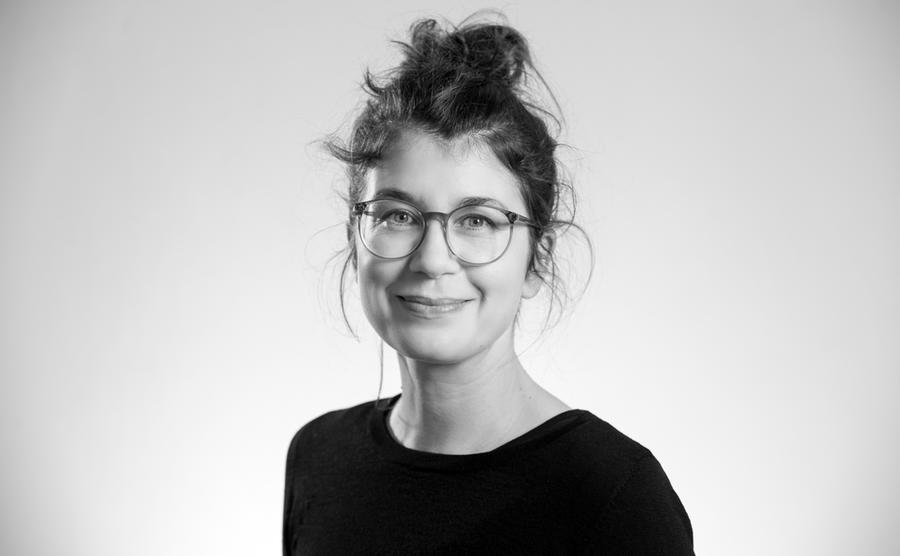Type d'actualité et date de publication
Chercheur.es accueilli.es au CAKStefanie Gänger
Du 1er mai au 31 juillet 2023

Professeure à l'Université de Heidelberg (Allemagne).
Thèmes de recherche
Histoire des savoirs ; histoire de la médecine ; histoire des fièvres
Travaux de recherche en cours
Fever. Global Histories of (a) Disease, 1750–1840
While at EHESS, Stefanie Gänger will engage in preparatory research toward her 5-year ERC project exploring the history of fever, which kicks off in October 2023. Her ERC project studies the prevalence and experience of fever in the Atlantic World during the late 1700s and early 1800s, the historic disease concept and pharmacopeia. Given that fever was a threatening, ubiquitous, and fatal ailment for men and women around 1800, we know surprisingly little about it. Researchers in the ERC project titled “FEVER - Global Histories of (a) Disease, 1750-1840” examine fever globally, particularly in societies within or tied to the Atlantic world, from southwestern Europe and western Africa to the southern Americas. The project breaks new ground in its global historical approach to histories of medicine, the body and disease that move beyond European perspectives, with an emphasis on societal variations in susceptibility to that ailment, the cultural contingency of disease concepts, and vernacular, ‘folk’ and indigenous fever remedies.
Éléments de bibliographie
Livres
2020. A Singular Remedy. Cinchona Across the Atlantic World, 1751–1820 (Cambridge University Press, Science in History).
2014. Relics of the Past. The Collecting and Study of pre-Columbian Antiquities in Peru and Chile, 1837–1911 (Oxford University Press, Oxford Studies in the History of Archaeology).
Livres co-édités
[with Jürgen Osterhammel] Rethinking Global History, or: The Global Historian’s Craft (forthcoming w. Cambridge University Press).
2014. [with Irina Podgorny & Philip Kohl] Nature and Antiquities. The Making of Archaeology in the Americas (Arizona University Press).
Direction de numéros spéciaux de revues
2019. [with Michael Bollig] Commodifying the ‘Wild’. Anxiety, Ecology, and Authenticity in the Late Modern Period, in: Environmental History 24, no. 4, 665-735.
2013. [with Su Lin Lewis] A World of Ideas: New Pathways in Global Intellectual History, c. 1880–1930, in: Modern Intellectual History 10, 2.
Articles et chapitres d'ouvrages
2021 [with Miruna Achim] Pas Encore Classiques: La Fabrique des Antiquités Américaines au XIXe siècle, Annales. Histoire, Sciences Sociales 76, no. 2, 341-76.
2019. Cinchona Harvest, Deforestation and Extinction in the Quito & Santa Fé Audiencias, 1752–1811, Environmental History 24, no. 4, 673-679.
2017. Circulation. Reflections on Circularity, Entity and Liquidity in the Language of Global History, Journal of Global History 12, no. 3, 303–318.
2016. In their Own Hands: Domestic Medicine and ‘the Cure of all Kinds of Tertian and Quartan Fevers’ in Late-Colonial Lima, Colonial Latin American Review 25, no. 4, 492–511.
2015. World Trade in Medicinal Plants from Spanish America, 1717–1815, Medical History 59, no. 1, 44–62.
2014. Of Butterflies, Chinese Shoes and Antiquities: A History of Peru’s National Museum, 1826–1881, Jahrbuch für Geschichte Lateinamerikas 51, 283–302.
2021. W. Jürgen Osterhammel: Une pause réflexive pour l’histoire globale, in: Histoire Politique 45 [revised French translation of “Denkpause für Globalgeschichte”].
2021. The Secrets of Indians. Native Knowers in Enlightenment Natural Histories of the Southern Americas, in: Simona Boscani / Meike Knittel (eds.), Mapping the Territory. Exploring People and Nature, 1700-1830 (Brill), 101-126.
2014. The Many Natures of Antiquities: Ana María Centeno and her Cabinet of Curiosities, Peru, ca. 1832–1874, in: Stefanie Gänger/ Philip Kohl / Irina Podgorny (eds.), Nature and Antiquities. The Making of Archaeology in the Americas (Arizona University Press), 110–124.
Présentation
Stefanie Gänger is Professor of Modern History at the University of Heidelberg. She holds an MPhil and a PhD in History from the University of Cambridge and completed her BA in History at the Universities of Augsburg and Seville. She has held visiting fellowships and professorships at the Max Planck Institute for the History of Science in Berlin, at the University of Pennsylvania, and at the Centre d'histoire at Sciences Po. She is involved in various collaborative research projects, e.g. as a member of a Horizon network on museum and collection history, the DFG-funded Research Network ‘Histories of Matter’ and as co-director, with Professor Jürgen Osterhammel, of the Balzan Research Group Rethinking Global History. In 2019 she received the Heinz Maier-Leibnitz-Prize, Germany’s most important award for early career academics. In 2023, she was awarded a Consolidator Grant from the European Research Council (ERC) for a project exploring the history of fever (“FEVER - Global Histories of (a) Disease, 1750-1840”).
Stefanie’s work considers the histories of science, collecting, and medicine in late-colonial and early Republican Spanish America, as well as the wider (Atlantic) world. Her first book, Relics of the Past – on antiquarianism in nineteenth-century Andean South America – was published by Oxford University Press in 2014. Her second book, which came out with Cambridge University Press in 2020, is an account of how medical knowledge was shared between and across a wide range of geographically disperse and socially diverse societies within or tied to the Atlantic World between 1751 and 1820. Her articles have appeared in journals such as Modern Intellectual History, Colonial Latin American Review, Journal of Global History, and Annales.